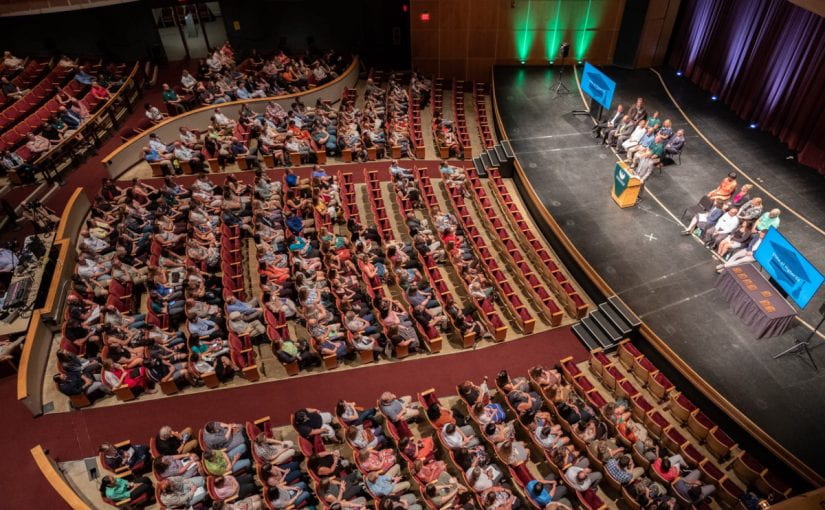Dear UW-Green Bay Faculty and Staff,
As part of my email to faculty and staff on January 18, I wrote the following regarding our progress with the strategic priority of Digital Transformation:
Our work to modernize our practices to thrive in a digital world has created positive changes in how we educate, broaden our connections to students, and complete our business functions. Now we need to put increased attention on how technology can further inform our work and prepare our students to thrive in a world where technology is ubiquitous. We will develop clear strategies for how we will use emerging technologies to increase access to education and the quality with which it is delivered. We will begin to use powerful technologies like AI to help us expand the impact of the people who work here. We must use technology to cover the mundane and instead use our “people power” to do what humans do best: communicate, solve complex problems, and inspire others. Given our current budget realities, we must get comfortable quickly with this way of operating. We know we are understaffed. Therefore, we must use technology to manage workloads, inspire human interaction, and increase the satisfaction that our faculty and staff get from doing their jobs.
I was excited to attend a discussion on April 12 with a group of faculty, staff, and administrators from UW-Green Bay organized by Titletown Tech and the Cofrin School of Business around the future of AI in education. We heard from amazing faculty across the University, and it confirmed the positive momentum we could create by connecting faculty with industry leaders all working with AI. To follow up on my January email and the April 12th discussion, I wanted to update you on several ways that we will develop an institutional response to the emergence of AI within education and the workplace and thereby advance our priority of Digital Transformation.
1. Kris Vespia, Courtney Sherman, and Christopher Paquet will create a draft institutional policy on AI to be reviewed for comments and suggestions early in the fall.
2. We will convene industry leaders in AI with a group of faculty led by Jennie Young from UW-Green Bay to share how they are using AI and the numerous ethical issues that we should consider.
3. We will convene a group of faculty led by CATL to advise us on how we should proceed internally with our instructional engagement with AI.
4. We are currently considering an enterprise solution that would enable us to use AI as a communication tool in a cohesive way across the University. This will allow us to broadly explore where we can enhance the student, faculty, and staff experience with the use of AI. We will provide professional development opportunities for staff on AI beginning this summer.
5. We will provide professional development opportunities for faculty this fall. CATL will continue to lead discussions and professional development on the issues of AI use in the classroom in consultation with other experts, such as GBIT, faculty with relevant expertise, and the future enterprise partner.
6. As previously discussed by Provost Burns, departments will establish program-learning AI outcomes for our students this fall.
7. The Cofrin School of Business will pilot the use of AI in classes this fall with the goal of offering it in all their foundational courses by the end of the academic year.
I look forward to continued discussions around this subject and am aware of the complexities around the issue. It is my hope that using AI in thoughtful ways can connect our staff and faculty more directly in a human way to our students, help with workload issues in certain areas, and engage our students in a way that they already understand and will use in the workplace when they graduate. I also think it gives us an opportunity to expand the ways in which we champion a liberal arts education. The use of AI demands that we as humans effectively question, communicate, and think beyond the level of just memorizing information. These are skills that we excel in teaching, and I look forward to creating a conversation around those ideals.
Best,
Mike





